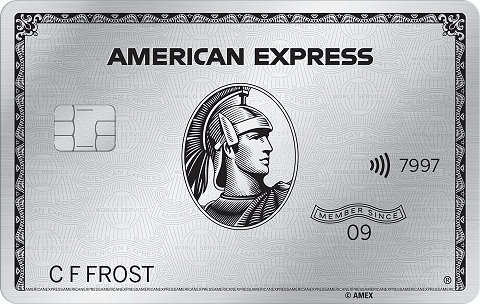I’ve been an enthusiastic award traveler for over a decade, using points and miles earned from credit cards to book flights, hotels and more. Award travel has granted me experiences that would have otherwise been over my budget, helping me explore the world, spend time with loved ones and get where I’m going in comfort.
I’m grateful for my hobby and eager to share it with curious friends and family. However, award travel has complexities and pitfalls that make it risky.
I’ve learned over the years that introducing others to award travel requires a degree of care, so here are five guidelines I use when I welcome new players to the points and miles game.
1. Set realistic expectations
According to the U.S. Bureau of Labor Statistics, the average U.S. household spent over $1,850 on transportation and lodging for out-of-town trips in 2022. With that figure in mind, I’m not surprised people commonly get into award travel as a way to cut costs. But while “get a credit card and travel for free” sounds alluring, the reality is it’s not free and not that simple.
Booking with points and miles takes varying degrees of effort, depending on where you want to go and how luxuriously you want to travel. In addition to planning your itinerary, you’ll have to figure out which airline and hotel programs you’ll use to book it.
Once you earn enough points and miles, there’s no guarantee the airplane seat or hotel night will be available. Even when they are, booking them may involve out-of-pocket costs, such as taxes, fuel surcharges or resort fees. In short, it’s no sure bet.
To manage expectations, I paint an honest picture of award travel. While it’s not a golden ticket to first class seats and presidential suites, it can help you travel for less.
2. Start small
Since I started collecting points and miles in 2010, I’ve opened over 80 credit cards in pursuit of sign-up bonuses, spending rewards and other benefits. I’ve sometimes averaged more than one new credit card per month.
I can handle that volume because I’ve worked up to it, learning how to manage my credit and loyalty accounts over the years. But a beginner attempting that same pace would be like a student driver entering a Formula One race.
I encourage newbies to start small and set an achievable travel goal (like booking one flight or hotel stay with points) and figure out how best to meet it. That narrow focus provides an opportunity to learn the ins and outs of award travel without getting overwhelmed. If things go well, ramping up is easy. If not, the cost of failure is low.
3. Emphasize good financial habits
You’re not likely to ding your credit score by trying chess or snorkeling, but getting into award travel generally involves opening (and monitoring) various financial and loyalty accounts.
Richard Kerr, vice president of travel at Bilt Rewards, says that award travelers must set their priorities appropriately.
“Rewards never outweigh interest and fees,” Kerr said, who adds that it’s important to make sure “the well-being of your personal finances always comes first in your pursuit of points and miles.”
According to data from the Federal Reserve, credit card annual percentage rates averaged more than 20% in 2023. Meanwhile, when redeemed for travel, most points and miles are worth just 1 to 2 cents.
Mismanaging accounts can be costly, so I stress the importance of organization and fiscal responsibility. I implore new award travelers to pay their credit card balances on time and in full and warn them against overspending. I also offer tips for keeping track of accounts and due dates and share my organizational tools where needed.
4. Follow along
Points and miles can open a lot of doors, but throwing folks in the deep end to fend for themselves can do more harm than good.
Once I introduce someone to award travel, I feel some responsibility for the outcome, so I offer my continued assistance as needed to help them stay afloat.
I try to proactively check in with folks about their progress and ensure they’re meeting spending requirements, managing accounts and avoiding unnecessary costs. If all goes well initially, I keep them apprised of future opportunities (like award sales or outsized credit card bonuses).
5. Don’t be pushy
The prospect of traveling at a heavy discount has the ring of a late-night infomercial, making many folks distrustful of it initially. I talk about award travel without sounding like I’m selling something. I speak plainly, avoid overhyping and never force details on disinterested parties.
On a related note, I’m upfront about any way I stand to gain personally. For example, I always disclose when a credit card offer earns me a referral bonus (even though I send my friends only the best available offers anyway).
Finally, I don’t ask for anything in return — my help comes with no strings attached.
Welcome offer
Earn 80,000 Membership Rewards® Points after you spend $8,000 on purchases on your new Card in your first 6 months of Card Membership. Terms Apply.
Enjoy a one-time bonus of 75,000 miles once you spend $4,000 on purchases within 3 months from account opening, equal to $750 in travel.
Earn 60,000 bonus points after you spend $4,000 on purchases in the first 3 months from account opening. That’s $750 when you redeem through Chase Travel℠.
Earn 60,000 bonus ThankYou® Points after you spend $4,000 in purchases within the first 3 months of account opening. Plus, for a limited time, earn a total of 10 ThankYou® Points per $1 spend on hotel, car rentals, and attractions (excluding air travel) booked on the Citi Travel℠ portal through June 30, 2024.
How to maximize your rewards
You want a travel credit card that prioritizes what’s important to you. Here are our picks for the best travel credit cards of 2024, including those best for:



